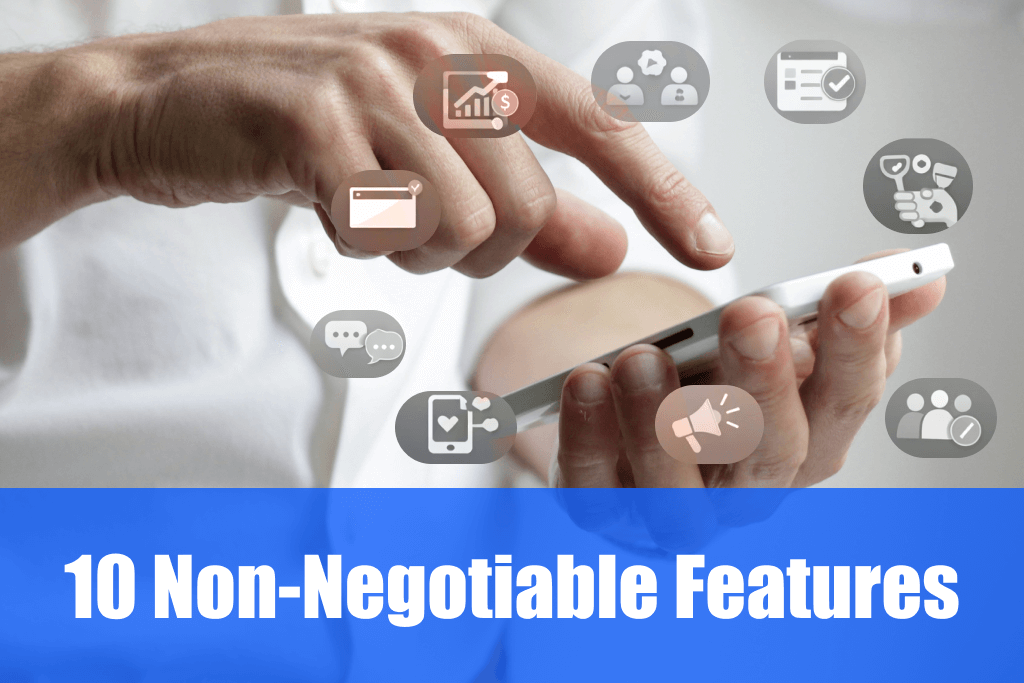The event planning industry is booming, with projections showing it is expected to be worth $2.1 trillion by 2032, making now the perfect time to turn your creativity into a rewarding career.
But don’t be fooled—while event planning might sound all fun and games, it’s far from effortless. Success in this field requires mastering countless details, managing budgets, and overseeing logistics, all while staying calm under pressure.
To help make your journey easier, we have listed down ten foolproof steps to kickstart your event planning career.
Reasons to Step Into the World of Event Planning
To many, becoming an event planner is a wish, but we assure you it has a lot more to offer. Below are a few of the reasons to step into the world
- You can showcase your creativity to the world using a wide range of colors and themes at events.
- By planning events at different scales, you get joy and satisfaction and are able to network with a variety of people.
- Working in an environment such as that of event planners provides you with diverse global opportunities
- Event planning helps you learn and develop problem-solving skills.
- It is high-paying work especially if you have a strong track record of success.
What Does an Event Planner Do
An event planner’s prime responsibility is to organize events and make sure everything runs smoothly. Some key responsibilities include:
.jpeg)
Here are some of the key role
- Understanding Client Requirements: Holding detailed meetings with clients to deeply understand their objectives, requirements, and preferences for the event.
- Event Conceptualization: Drafting and conceptualizing everything about the event, including its theme, layout, and overall design, to align with the client's goals.
- Budget Management: Creating itemized event budgets, getting them approved, and ensuring everything stays within budget.
- Venue Selection: Securing a venue that is within the clients’ budget and in accordance with their concept.
- Vendor Coordination: Finding and negotiating with various vendors, including caterers, decorators, and entertainers, to provide necessary services.
- Logistics Planning: Organizing logistical elements, including transportation, accommodations, equipment rentals, and scheduling.
- Permits and Compliance: Obtaining required permissions and permits to ensure compliance with legal and safety regulations.
- Marketing and Promotion: Collaborating with marketing teams for effective event promotion if the event is public.
- On-site Management: Monitoring the event, managing everything from staff to food, addressing any last-minute issues, and ensuring everything goes smoothly.
Essential Skills and Qualities To Become an Event Planner
You need to learn and practice the following skills and qualities to become a successful event planner.
.jpeg)
Communication Skills
An event planner needs to communicate with many people, including clients, vendors, brand sponsors, and attendees. Good communication skills will help you effectively communicate your demands and understand what client wants from you.
Problem-Solving
A lot can go wrong during an event, especially one catering to a large audience. In such stressful situations, an event planner needs to remain well-composed and quick on his toes. He should be able to make wise pre-event and run-time decisions and solve any unseen challenges or problems to ensure the event’s success.
Multitasking & Time Management
As an event planner, you’ll have multiple tasks on your plate at any given time. As a successful event planner you should know how to juggle between tasks while meeting strict deadlines.
Leadership & Teamwork
A successful event planner is always a successful leader. Hence, he should guide the team effectively and encourage collaboration. He must also foster a healthy working environment for team members.
Budgeting
Budgeting is an integral part of event management. An event planner should know how to manage finances and organize things so that they don't exceed the set budget. Proper budgeting includes everything from strong research and documentation skills to negotiating with clients and vendors.
.jpeg)
How Does an Event Planner Differ from an Event Coordinator?
The difference between an event planner and an event coordinator solely depends on their scope of responsibilities. Event planners have broader duties, from finalizing themes and budgets to communicating with multiple vendors, they have to oversee everything.
On the other hand, an event coordinator (or event manager) only needs to check event logistics. Their list of responsibilities includes managing everything on-event, including logistics and guest lists, coordinating with vendors, and ensuring everything goes as planned.
Many of the key responsibilities of both event planners and coordinators overlap, but since event planners overlook more things, their salaries are typically higher.
How To Become an Event Planner? 10 Necessary Steps
1. Understand the Event Planning Industry
The first step towards your dream is understanding the event industry. You need to conduct in-depth research on the latest industry trends for different types of events, followed by popular event types (the ones that are always in demand).
Assess the latest technologies used for event planning, such as AI-driven matchmaking and virtual reality, to enhance your planning capabilities.
Apart from this, carefully dig into the emerging event formats. For example, during the COVID pandemic, hybrid and online events were at a peak, but from 2023 onwards, in-person events are back.
Analyze both local and global markets—what types of events people around you prefer and how they differ from what people around the world prefer to identify potential responsibilities.
2. Identify Your Niche
Here comes the most exciting part—identifying the niche. Apart from your interests and expertise, you also need to analyze the market demand to get opportunities that will pay you higher.
Evaluate your competitors and top performers in the event planning industry to see what niche they are offering. Unless it’s your calling, stay away from highly saturated niches to avoid unnecessary competition.
So you narrowed down a niche that’s both exciting and low-competition But, does it pay well? Always keep the profitability of the niche in mind, before finalizing. Events such as weddings and corporate get-togethers typically cost more than others.

3. Build Foundational Knowledge and Necessary Skills
Now, let's move toward the most important part of this process, which is building relevant skills and foundational knowledge.
Pursuing a degree or certification in event planning will help educational foundations. Although no degree or certification is necessary to get into this work, doing one gives you a competitive edge over others.
You can also enroll in industry-recognized event planning certifications like CSEP, CMP, and CMM to enhance your credibility. These certifications will help you improve your problem-solving, management, negotiation, and other essential skills that will shape you as a successful event planner.
"Starting as an event planner requires a strong foundation in project management, communication, and creativity. It's essential to have a keen eye for detail and the ability to handle multiple tasks simultaneously." - Sarah Robbins
4. Gain Hands-On Experience
Knowledge and skills aren't enough – you need to put these skills and knowledge into practical experience. Below are a few ways to gain hands-on experience:
- Volunteer at events near you.
- Apply for internships at event managing companies, hotels or non-profit organizations.
- Organize small-scale events for your family or friends.
- Apply for entry-level positions such as assistant event planner.
- Network and connect with industry professionals and listen to their stories and tips.
- Attend relevant seminars and workshops.
5. Master Event Planning Tools and Technology
An event planner should have access to tools and platforms. There are numerous event management platforms and tools that you can learn. These platforms help streamline event execution, attendee management, ticketing, and registration; and provide real-time analytics.
Below are some of the best event management platforms you can use:
6. Create a Professional Portfolio
Once you have enough experience for someone who just stepped into the industry, create a portfolio to document your experience. To create a professional portfolio, you should include the following:
- All about your brand: Name, logo, contact information and brand colors.
- Pictures of the events you have organized.
- Relevant degree and certifications.
- Social media profiles.
- Client testimonials and references.
- Pricing and plans.
- Contract templates.
All of this, put together nicely, would leave a lasting impression on your client.
"Don't be afraid to start small. Volunteer for local events, offer your services to friends and family, or take on smaller-scale projects to build your portfolio and gain experience. As you gain confidence and a solid reputation, you can gradually take on larger and more complex events." - Lisa Wong, Event Planning Expert
7. Network Within the Industry
According to a survey, around 85% of jobs are landed through networking. With such a whooping figure, it would be a mistake not to network.
You can network in person by joining event planning associations and groups. Or you can build a solid presence on your social media platforms and try to interact with thought leaders of your target industry.
Another great networking strategy is to volunteer with professional event managers to help them plan and manage industry events. You’ll get a chance to connect with like-minded individuals, and as a cherry on top, you’ll learn valuable tricks of the trade. Once you connect with these professionals, don’t shy away from asking for referrals.
8. Start Small and Scale Gradually
All big things come from small beginnings. Before you start planning grand events, you need to set a strong foothold by working on small-scale and modest event management projects.
You can start with planning family events, local community gatherings, or private social functions. This will help you gain real-life experience of managing events. You’ll also realize the complexities and challenges of managing an event.
Once you successfully host a few small-scale events, you can gradually scale up by hosting bigger and more complex events.
9. Market Yourself or Your Services
Now that you have an excellent resume, have some event management experience, and are connected to industry professionals, it is time to market yourself and your service.
You can develop a website to showcase your previous work, client testimonials, and pricing plans. You should also use social media platforms to market your services.
For successful social media marketing, you need to first understand your target customers. Research their interests, goals, and the kind of social platforms they frequent. For example, run a targeted social media campaign on Instagram if you are a wedding planner or on LinkedIn if you are a corporate planner.
10. Stay Current and Keep Learning
You never stop learning. Even if you become a successful event manager, you need to stay updated with current trends of the ever-evolving event planning industry.
Read the latest publications and blogs and pursue advanced event planning certifications. You can also attend workshops, seminars, or conferences for event planners to learn and stay ahead.
"The event planning industry is constantly evolving. Stay updated on the latest trends, technologies, and best practices. Be willing to adapt to changing circumstances and embrace new challenges." - Emily Davis, Event Planning Consultant
Let’s Get Started Today!
It's high time you step into this exciting journey filled with creativity, challenges, and rewarding experiences. By following the ten steps mentioned above, you can start event planning with no experience and grow to build a strong foundation to thrive in this dynamic industry.
It doesn't happen overnight, so you need to stay consistent, learn, and grow gradually. Your dream career in event planning awaits; take the first step today!







.png)
.jpg)




